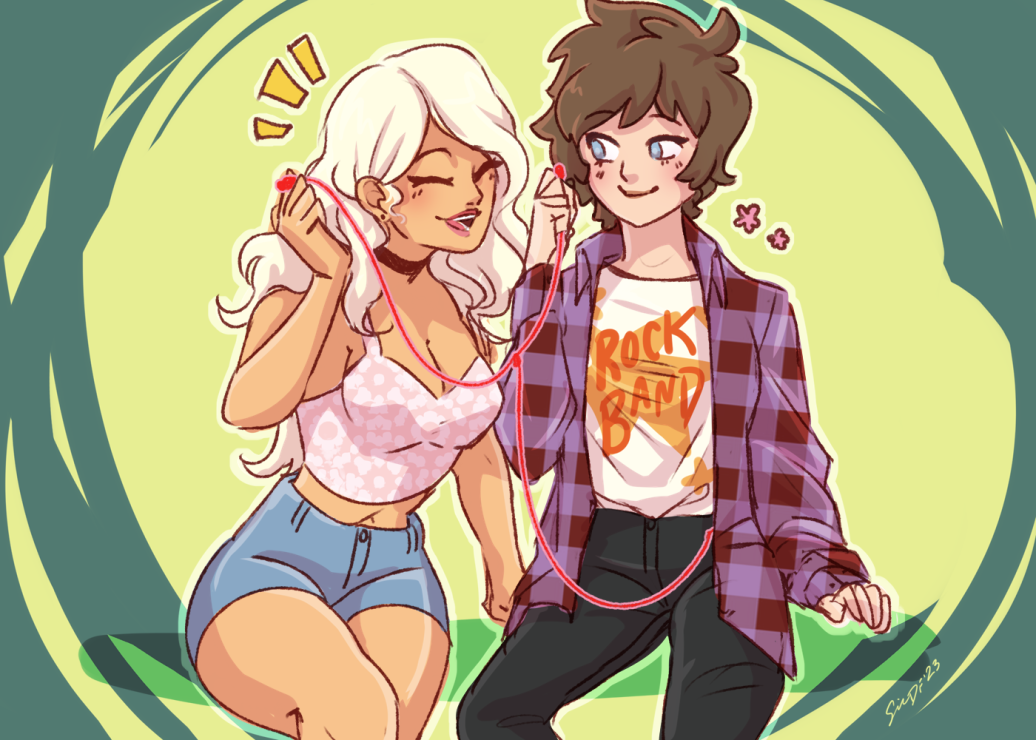Though the phrase has disappeared, we still have work to do

Illustration by Sie Douglas-Fish.
The “I’m not like other girls” phenomenon was a prominent topic in feminist discussions on social media in the late 2010s. While the popularity of this discussion peaked long ago, as someone who lived through it, I’m only now able to clearly reflect on it and its problems.
“I’m not like other girls” was a noticeable pattern of behaviour among many young girls who used that phrase to distance themselves from other girls. This was often accompanied by a rejection of femininity or the girls around them. It was common to see posts that depicted one girl reading a book surrounded by others applying makeup or looking in mirrors, claiming that being different made them better.
Though the popular phrase was understood by some as an expression of misogyny, those who used it did not realize its implications. For some, saying or thinking “I’m not like other girls” was a way of rebelling against stereotypes. However, it inherently put other girls down.
In 2016 and 2017, women shared their reflections online about their own “I’m not like other girls” phase. Creators like Savannah Brown and Arden Rose shared their stories and perspectives online. Many talked about hardships faced during puberty and how they felt like they couldn’t fit in with the other girls, leaving them feeling excluded or pressured into things they didn’t want to do.
The phrase was a symptom of the greater issue of misogyny.
Instead of addressing the root cause of misogyny, internet discourse took this behavioural symptom and used it as an opportunity to further police young girls behaviour instead of helping develop their self-worth.
Rather than trying to make girls more comfortable with themselves or to create a sense of community with other girls, girls who exhibited this behaviour were simply being told to stop. A common phrase used was “you are no better than any other girl,” which in the broader context of internalized misogyny was more likely to hurt than help. A kinder phrase was “it’s fine to be a girl” or “it’s okay to be a girl.” This may have provided some relief, but did little to address the deep rooted self-hatred at the centre of the phenomenon.
Not all attempts to stop people from saying “I’m not like other girls” were that kind. Many on the internet took to mocking girls who behaved that way, creating memes and short skits was a popular way of providing entertainment at their expense.
The problem was “solved” through shame. Though the phrase fell out of common use, the true issue was only masked. These girls were silenced by well intentioned commenters, rather than helped. They were condemned as mean girls and few questioned if they needed help.
This condemnation was mostly done by people who claimed to be progressive feminists. Perhaps this was the product of the older generation of women’s internalized misogyny — unknowingly operating under the same mindset by essentially expressing, “We aren’t like those other girls who say they aren’t like those other girls; we are better than them.”
Through this “I’m not like other girls” crackdown, tomboys were called attention seekers who hated the girls around them and were not so secretly trying to get boys to like them back. As femininity was criticized at the time, there was nothing girls could do, change, or say to escape the scrutiny of being girls.
Pain doesn’t always express itself in politically correct ways. “I’m not like other girls” was a cry for help. Though the phrase rejected female solidarity and criticized other women, they were only repeating what they had been taught.
Looking back, we did put a stop to the specific phrase “I’m not like other girls” for the most part. But the movement to stop it not only failed to address the root cause of patriarchy, it reinforced it by further criticizing women.
The movement to stop the “I’m not like other girls” phenomenon serves as a cautionary tale of what happens when social movements do not check their own internalized biases and lack empathy for the people they advocate for. The outcome should raise the alarm about the lack of support and resources for girls dealing with internalized hatred.
While we have come a long way since the “I’m not like other girls” trend, we still haven’t fully addressed the deep rooted misogyny that is present — even in progressive movements.






